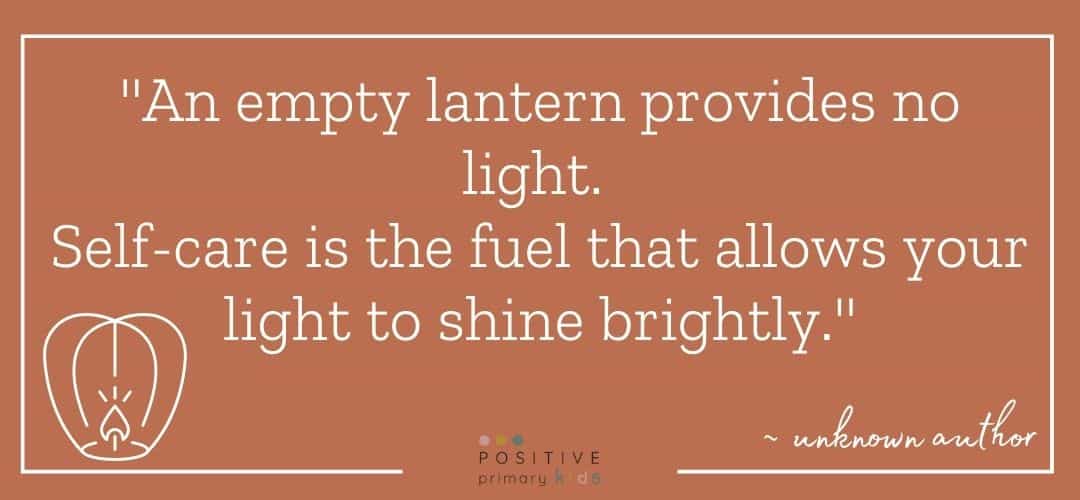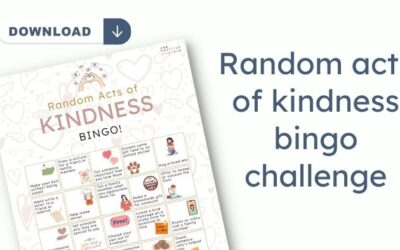In this post, we’ll take a closer look at different types of self-care and how they contribute to emotional and mental wellbeing; our relationships with ourselves and others and our general health. I’ll also share some ideas on how you and your children could practice each of them.
This follows on from my previous post, What is Self-Care and is it Important for Kids?, where explained how self-care doesn’t have to be fussy or time-consuming. It can be simple, everyday acts that nourish different aspects of your wellbeing. I also talked about how introducing self-care to your children benefits them and helps them to establish healthy habits and routines to take through life.
Affiliate Disclosure: This post may contain affiliate links. This means that I may receive a small commision – at no cost to you – if you make a purchase through these links. Thank you for your support!
With these strange and uncertain times we are all experiencing during the COVID-19 pandemic, we are being exposed to increased and prolonged stress and anxiety. This could have a long term impact on mental health long after the pandemic ends.
Now is a great time to prioritise how you and your family look after your minds, bodies, hearts and souls. If you want a helping hand getting started, read on to download your free simple start tracker.
How Many Types of Self-Care Are There? And Do I Need To Practice all of Them?
If you came across this post whilst googling types of self-care to improve your routine, then no doubt you’ve seen links to articles describing everything from four to eight or more different aspects, elements or categories. It gets a bit confusing, to be honest!
When I’ve been working on my own self-care plans, I’ve found that to me, some of the aspects overlap, or that I can’t clearly define one from another in a way that is meaningful to me. So I will be general in my descriptions here – you may want to define them differently.
So do you need to practice each type of self-care? As with many things, it is best to strive for a balance. There will be times when it’s more important for you to focus on meeting some aspects of your needs over others.
Rather than getting bogged down by categorising and defining, I encourage you to start by thinking about how each type applies to your life right now. You can then look at each and decide if you are meeting your needs in all areas or if there are some that are a bit neglected.
Essential Self-Care – The Basics
Everyone has unique needs that change depending on what’s going on in their life at that time. However, there are essential basic needs that need to be taken care of first. These are physiological needs that include nutrition, hydration, sleep and shelter.
After all, if you are lacking sleep and running on empty, there’s no point in taking up meditation to ease stress. You are likely to just fall asleep!
Four Types of Self Care For a Balanced Approach
There are so many ways to practice self-care, not all will be suitable or helpful to everyone’s life, nor will everyone find the same activities enjoyable – and they must be enjoyable. I personally find it helpful to use four broad categories to ensure that I am getting a good balance.
Those are: mind, body, heart and soul.
4 Types of Self-Care You Need In Your Routine
#1 Self-Care for The Mind
I’ve put this first, because it is so important, but tends to be overlooked. It’s a broad category that is often subdivided. For the sake of simplicity, I’m including all activities that nurture your mental, intellectual and psychological needs in this category.
The thoughts that you have and the activities that you participate in occupy your mind and hold a lot of influence over your mental wellbeing. This can have a strong positive or negative impact on your mental health.
Habits like constantly engaging in negative social media posts or keeping an eye on a 24-hour news cycle that is full of distressing events you could be causing serious harm. They can leave you feeling anxious, hopeless and burnt out. It’s easy to spiral into catastrophizing thoughts, sadness and lost sleep.
On the other hand, activities that challenge your brain, expand your knowledge, bring you back into the present moment or reduce stress are healthy ways to care for your mind.
A few ideas to get started:
- Video chat with someone who radiates energy and positivity
- ‘Unplug’ from the internet and switch phones off for a day/evening/hour and do something like a puzzle or board game as a family
- Colour in an intricate pattern, like a mandala
#2 Self-Care for The Body
This includes basic activities that improve your physical health such as getting enough looking after your medical needs, sleep, eating nutritious, balanced meals and taking exercise. Other activities that promote your physical wellbeing include treatments like massages or acupuncture; taking time off work when you need it; cleaning your physical space and taking some ‘me time’ to relax and restore.
There is a very strong connection between the mind and the body. Look after one and it has an impact on the other. Neglect one and the same happens.
Here are some ideas:
- Pick out some healthy meals with your child that you’ve never had
- Take a leisurely family walk in nature
- Find a fun YouTube workout and do it as a family
#3 Self-Care for The Heart
This type of self-care is all about looking after your emotional self. At its core, emotional self-care is about checking in with yourself, understanding and identifying your emotions and taking steps to nurture them. It’s a process of learning about ourselves and how to deal with life’s curve-balls.
Nurturing our emotional selves can be a difficult journey because it often doesn’t come naturally, but it is essential to overall well being.
It can be easier, more comfortable and convenient to bury our emotions, or tell ourselves that we will deal with them later. Sadly, this tends not to happen and those emotions become stronger and cause us harm.
Learning to acknowledge your feelings, what energises and drains you and how to establish healthy boundaries are all elements of emotional self-care.
Here are some ideas to explore:
- Start a gratitude journal
- Do something, anything, everyday that you really enjoy
- Kick start your day with affirmations
#4 Self-Care for The Soul
This is probably the aspect of self-care that is most unique to each individual. Otherwise known as spiritual wellbeing, this aspect of self-care doesn’t necessarily have to do with religion, although it can if that nourishes your soul. It’s more about getting in touch with your inner-self, your spirit, you soul, whichever resonates with you. It can be anything that helps you to develop a sense of connection, meaning, purpose or understanding of your place in the universe.
A lot of people are put off from exploring this aspect, maybe because they aren’t religious or it seems a bit hippy, new-age or woo-woo to them. But I encourage you to develop some kind of practice to nourish your spirit, find some inner peace and help you feel like you belong.
A few ideas to get started with:
- Volunteer for a community project
- Play music from your favourite artist and sing, dance or just listen
- Learn some basic meditation (I highly recommend Headspace)
Other Areas of Self-Care
You are likely to come across other types of self-care practice as you read and learn. These include environmental or space, financial, professional or work, social, lifestyle, personal or practical. I think that a lot of these overlap or are already accounted for within the four types that I’ve described on this page. I like to keep things simple when I can, but if these categories are meaningful to you, I encourage you to explore them.
Tips and Reminders for Success
My take-home message to you is this – self-care shouldn’t be optional.
It is a gift to yourself that allows you to honour your needs and should be a priority. It also shouldn’t be a little treat here and there or emergency first-aid after a stressful week.
For self-care to have a meaningful impact, it needs to be a non-negotiable part of your routine.
I’ll leave you with some quick tips and reminders to help you get started:
- Don’t overthink the categories. Instead, think about what your needs are right now
- Start simple and add activities gradually
- Aim for a balance of activities that nourish your mind, body, heart and soul
- If you don’t enjoy an activity, try something else
- Don’t leave it until tomorrow, Monday, New Year etc. Start today – even a tiny step like drinking more water will help!
Good luck on your journey. Can’t wait to hear how you get on!
Keep an eye out for my upcoming post where I will be sharing a self-care advent calendar for December.
In Case you missed it…
Grab your Free Self-Care Tracker Here!
Here’s how it works:
- Pick up to four activities from the prompts (or choose your own).
- Make them a priority by doing and tracking them for 7 days.
- At the end of the week, reflect on your journey and tweak your goals for the upcoming week.








0 Comments